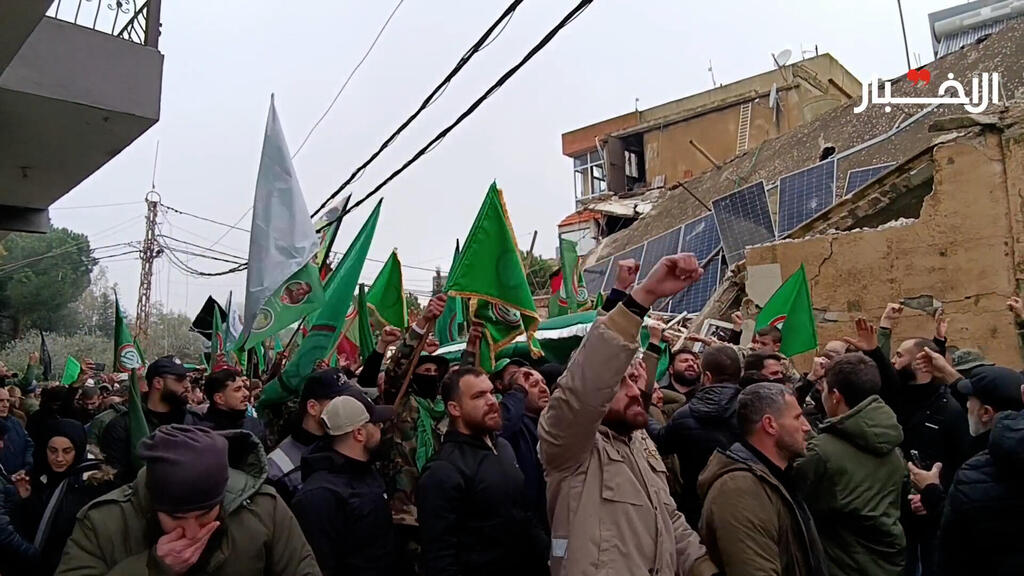Getting your Trinity Audio player ready...
Amal members funeral
The Lebanese Shi'ite Amal movement founded in 1974 has seen its profile rise significantly after five of its members were killed by IDF strikes over the span of just four days. The Hezbollah-affiliated Al-Akhbar newspaper confirmed its involvement, saying Amal had "its blood firmly within the confrontation".
Read more:
Lebanese media released the name of three of Amal's operatives who were killed: Hassan Hussein Sukeiki, Jaafer Amin and Hussein Ali Azam who were killed when the IDF launched a strike on a house located in the Southern Lebanese village of Beit Lif. Last weekend, it was confirmed that two other members, Ali Khalil Mahmad and Mustafah Abbas Dahr, both from the Lebanese town of Blida, were similarly eliminated while "defensing Lebanon and the south". Their funeral was accompanied by "Death to Israel" chants.
Amal forces were deployed along the border with Israel since the war in Gaza began. In November 11, t an operative named Ali Jamil al-Hajj Daoud was killed, and a recent Al-Akhbar report said the deaths of all these Amal members has emboldened many to join their ranks. An Amal leader said Israeli strikes don't have the same deterrence level they did 17 years ago during the 2006 war.
Lebanese Parliament speaker, Nabih Berri, who founded the group and is its leader, said "Amal is ahead of Hezbollah when it comes to protecting Lebanese soil through armed conflict," adding that "the diplomatic resistance is a crucial part of resistance at large".
Various Lebanese publications, as well as parliament officials, have said the Amal movement has been operational since the early 80s, and should a full-scale conflict with Israel come to pass, their members would be at the forefront of defending Lebanon.
An unnamed source inside the Shi'ite faction said there's a clear distinction between Amal and Hezbollah, though they do share "a strategic and military vision". The distinction, he said, is that Hezbollah is part of the Axis of Resistance, while Amal is more locally focused on defending lands in southern Lebanon.
A recent article in "Al-Quds Al-Arabi" highlighted a distinct divergence between Amal and Hezbollah, seemingly originating from Amal's deviation from the resistance axis's concept of "unity of the arenas." When reporting the deaths of its activists, the Amal movement officially states that they have died "as martyrs defending Lebanon and the south".
This contrasts with Hezbollah's narrative, which proclaims its operatives died as "martyrs on the path to Jerusalem". The newspaper suggests that Amal's choice of words garners more favorable responses from those critical of Hezbollah's involvement in "conflicts beyond Lebanon's borders" and who reject the notion of "the unity of the arenas".
However, both have ruled out any sort of ceasefire as along as Israel's offensive of Gaza persists, and an Amal and Parliament member, Qassem Hashem, said reports suggesting a drawdown of hostilities between them and Israel, based on mediation efforts by White House emissary Amos Hochstein, are inaccurate.
Asharq al-Awsat, a Saudi paper based in London, released an article last December emphasizing the Amal movement's more domestic focus, saying they do not serve as an additional tentacle of the Iranian Octopus, despite some level of cooperation with Hezbollah when it came to retaliating against IDF attacks in southern Lebanon.







